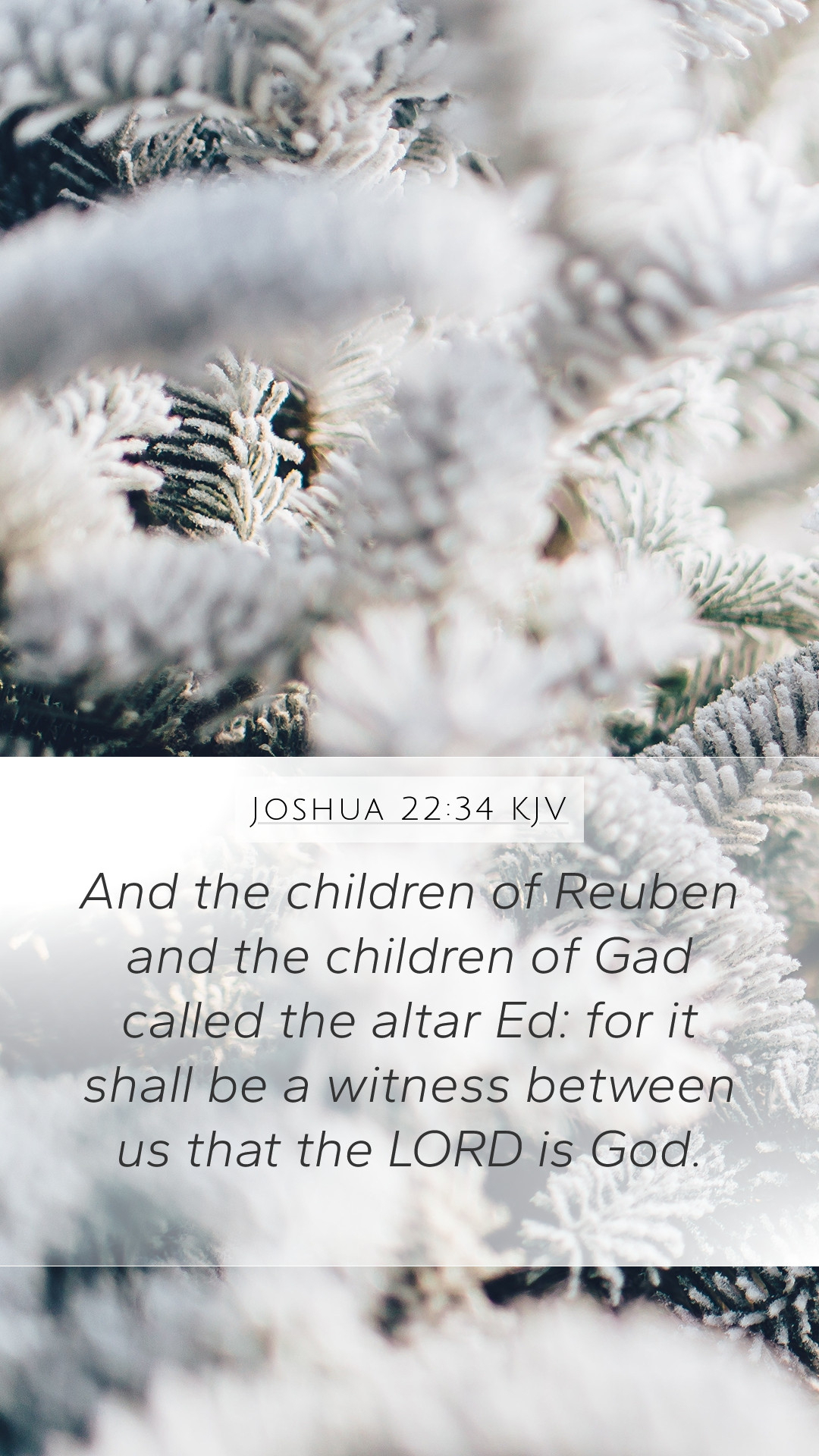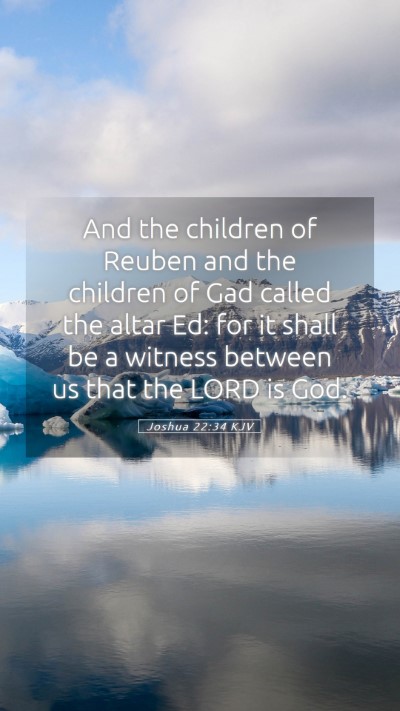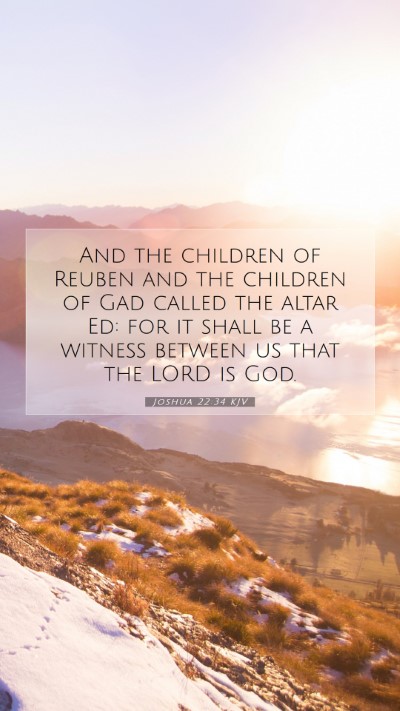Bible Verse Meaning for Joshua 22:34
Joshua 22:34 states: "And the children of Reuben and the children of Gad called the altar Ed; for it shall be a witness between us that the Lord is God." This verse encapsulates a significant moment in the history of Israel, emphasizing the unity and relationship between the tribes and their acknowledgment of God’s authority.
Summary of Insights from Public Domain Commentaries
This verse serves as a pivotal reminder of the importance of community and spiritual accountability among the Israelites. Below are insights combined from prominent commentaries:
Matthew Henry Commentary
Matthew Henry emphasizes the necessity of having a visible sign of faith and commitment to God. The altar, named Ed, represents more than just a physical structure; it acts as a witness to the covenant between the tribes and the Lord. Henry suggests that this act of building an altar was a declaration of their allegiance to God and their role in the unity of Israel.
Albert Barnes' Notes on the Bible
Albert Barnes explains that the altar was built as a safeguard against potential separation or misunderstanding between the tribes. He highlights that naming the altar “Ed” (meaning "witness") signifies that all descendants and future generations would recognize it as a symbol of their spiritual heritage and collective commitment to God's law. This community aspect reinforces the concept that individuals are not isolated in their faith journeys, but rather part of a greater whole.
Adam Clarke's Commentary
Adam Clarke points out that the mention of the altar serves as a reminder of divine unity among the tribes of Israel. Clarke argues that it also serves a prophetic purpose, foreshadowing their future interaction as a united people dedicated to serving God. He notes that this moment solidifies their bond and commitment, ensuring that worship and recognition of God remain central to their identity.
Key Themes and Applications
The primary themes emerging from Joshua 22:34 revolve around:
- Witnessing God's Sovereignty: The altar acts as a constant reminder that the Lord is God, reinforcing faith among the tribes.
- Community and Unity: Building the altar together symbolizes their shared beliefs and mutual accountability to God.
- Generational Legacy: The naming of the altar ensures that future generations recognize their history and commitment to God.
Application of Joshua 22:34 in Daily Life
For believers today, this verse underscores the importance of community in faith. It encourages individuals to:
- Participate in and foster community worship and accountability.
- Establish symbols or practices that reaffirm their devotion to God, much like the altar did for the tribes.
- Recognize and teach the significance of their faith legacy to the next generation.
Cross References
Joshua 22:34 is related to several other Bible verses that further highlight its themes:
- Joshua 1:9: "Have I not commanded you? Be strong and courageous. Do not be afraid; do not be discouraged, for the Lord your God will be with you wherever you go."
- Deuteronomy 6:6-7: "These commandments that I give you today are to be on your hearts. Impress them on your children. Talk about them when you sit at home and when you walk along the road, when you lie down and when you get up."
- Psalms 78:4: "We will not hide them from their children; we will tell the next generation the praiseworthy deeds of the Lord, his power, and the wonders he has done."
Conclusion
In conclusion, Joshua 22:34 serves as a profound reminder of the importance of communal worship and acknowledgment of God in our lives. It invites believers to reflect on their commitments, act as witnesses in their faith communities, and ensure that their spiritual legacy continues to inspire future generations.


